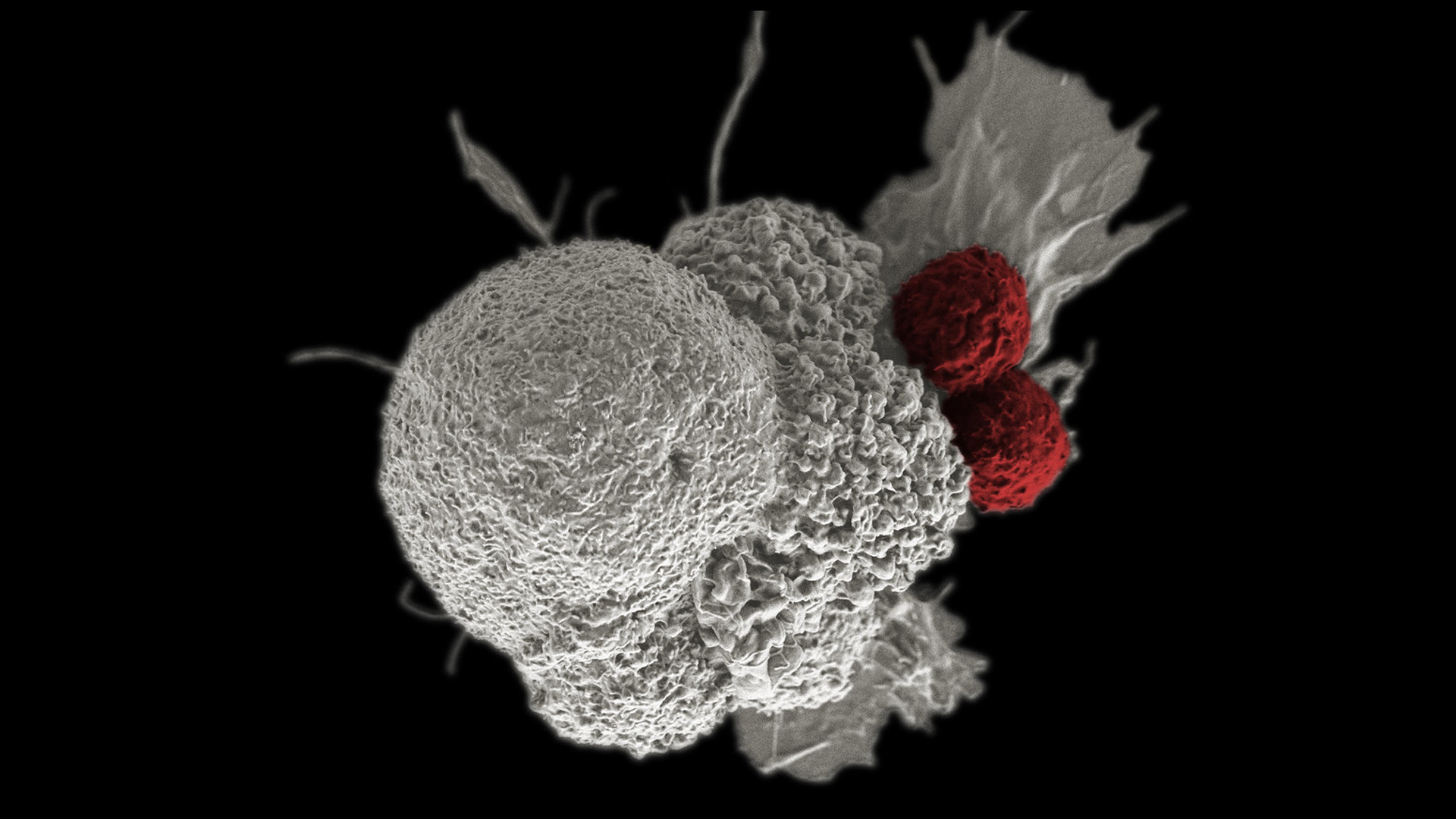 A cancer cell (white) is attacked by two T cells (red) in this electron micrograph image.
A cancer cell (white) is attacked by two T cells (red) in this electron micrograph image.
National Institutes of Health
Researchers studying prostate cancer have found introducing the disease in mice does not always produce accurate results. University of Arizona scientist Cynthia Miranti talks about how placing cancer cells on a microscopic chip lets researchers study potential solutions in a specific, controlled environment.
Catch Arizona Science each Friday during Science Friday on NPR 89.1. You can subscribe to our podcast on Apple Music, Spotify, Amazon Music, or the NPR App. See more from Arizona Science.
MORE: Arizona Science




By submitting your comments, you hereby give AZPM the right to post your comments and potentially use them in any other form of media operated by this institution.